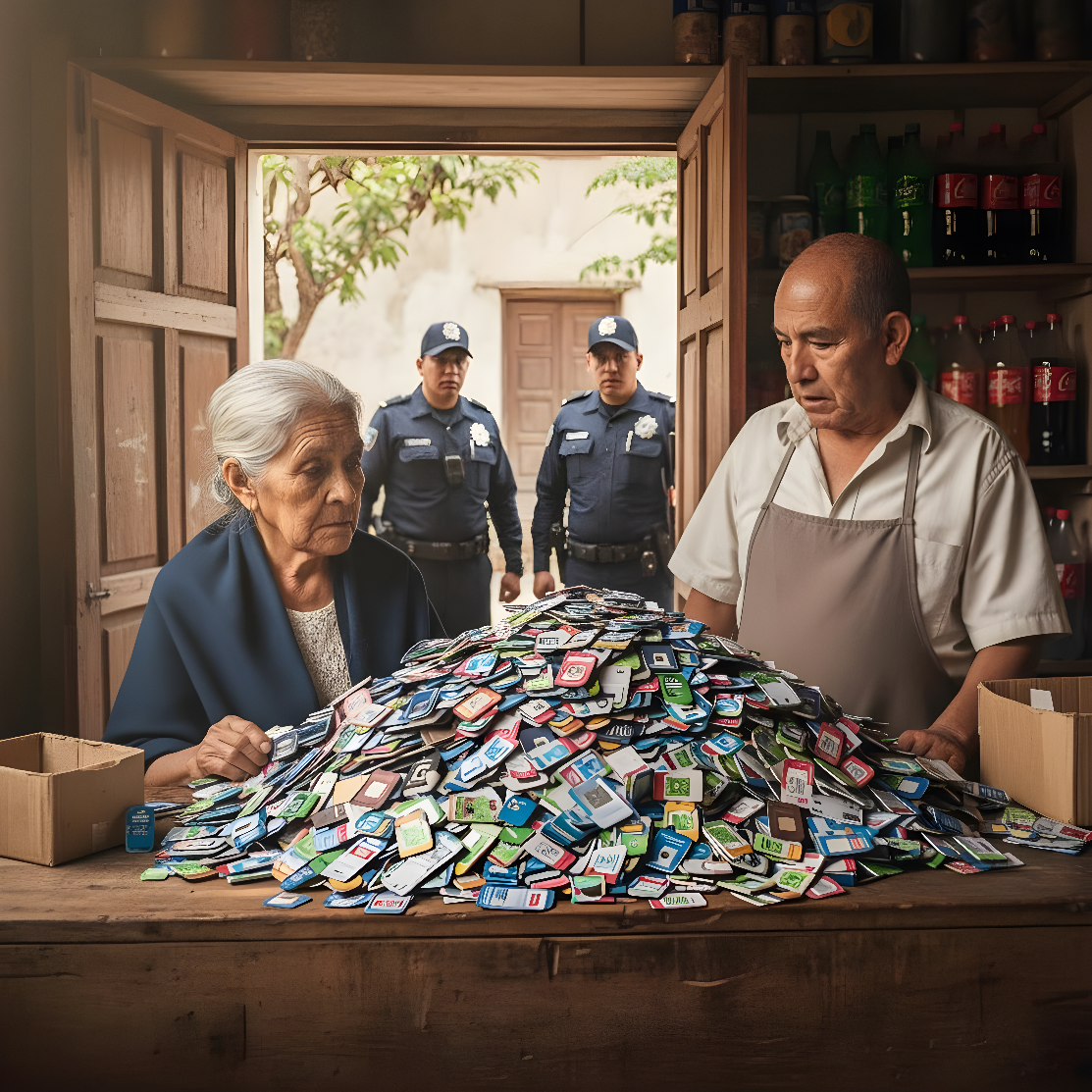In the humble neighborhood of San Miguel del Río, a dusty corner within the state of Puebla, the residents could identify each other just by the sound their footsteps made. The gentle shuffle of sandals was enough to know who was heading to the local store or church. Among these peaceful inhabitants lived Doña Luz, an eighty-five-year-old woman, petite in stature, her white hair neatly tied in a bun, with eyes that reflected both weariness and tranquility.
She had outlived almost her entire family. Her husband, don Emiliano, passed away at a young age, and her only son, Tomás, had died in the Chiapas conflict during the 1990s. Years later, her youngest daughter, who had married a man from Veracruz, lost her life in a bus accident. From that moment on, Doña Luz led a solitary life in her adobe home, accompanied only by her cat “Chispa” and an old radio that still hummed boleros with a trembling voice.
Everything remained peaceful until one particular May, when Don Ernesto, the shop owner and phone card agent, started noticing something unusual.
Each Tuesday morning, Doña Luz arrived promptly, draped in her blue shawl with a small cotton bag over her shoulder. She bought more than twenty SIM cards — inexpensive ones that cost just a few pesos each.
At first, Don Ernesto suspected someone might be taking advantage of her. However, as weeks passed, her punctual purchases persisted, almost as if they were part of a sacred routine.

One day, unable to contain his curiosity, he asked her directly:
“Doña Luz, why do you need so many SIM cards if you don’t even use a cellphone?”
She responded with a gentle smile revealing worn teeth and eyes glistening with emotion:
“To call my children, son. So they don’t forget their mother.”
Don Ernesto felt a chill run through him. In their town, everyone was aware she had no living relatives.
Days later, while sweeping his store’s entrance, Ernesto noticed her sitting calmly on the sidewalk opposite his shop. The elderly lady held an old black Nokia phone in her hands, slowly dialing number after number, although never speaking.
She just stayed still, pressing the phone to her ear, then after a while, lowering it with a soft smile and whispering:
“I called you today, son. Can you hear me?”
The sight gripped Ernesto’s heart painfully. That same afternoon, he shared what he witnessed with Don Felipe, the neighborhood leader. Worried, they decided to inform the local authorities, fearing someone might be registering multiple phone lines under her name to commit fraud.
The next day, two officers visited the elderly woman’s modest home. The gate stood slightly ajar, revealing aged whitewashed walls adorned with holy images and an altar decorated with withering flowers.
On a wooden table lay numerous empty phone chips — boxes carefully opened and stacked next to a notebook filled with shaky handwriting listing numbers.
One officer asked kindly:
“Ma’am, did you purchase these SIM cards? What do you use them for?”
Doña Luz lovingly smiled and pointed to a black-and-white photograph placed dominantly on the altar: a young man dressed in military uniform, wearing a beret, his smile firm.
“That’s Tomás… my son. When he left for the war, he would call me weekly from different numbers. But one day, he stopped calling. I keep trying to reach him. Every new card represents another hope. Perhaps one of those numbers still rings where he is…”
Silence enveloped the room, broken only by the ticking wall clock.
With trembling hands, she picked up the phone and dialed a series of digits.
“Look, this was the last number he used to call me. I try every week. Maybe someday… he will answer.”
A tear slowly ran down her cheek.
- In the notebook, next to each number, was carefully noted: “Date I called my son – no answer.”
One of the officers, deeply moved, quietly inquired:
“Has anyone ever answered?”
Doña Luz smiled:
“Yes. In my dreams. He says the heavens have poor reception but that he hears me sometimes.”
Weeks later, on a September morning, Don Ernesto opened his shop and found Doña Luz’s cotton bag resting on the counter. Inside was a delicately folded note:
“Thank you, son. I no longer need more SIM cards.
I finally managed to reach them.
I’m going to join Tomás and his father.
— Luz María.”
That very afternoon, neighbors found her peacefully resting in bed, a serene smile on her face, the rosary intertwined between her fingers, and the old Nokia resting over her chest.
On the phone screen, a message still glowed softly:
“Calling… Tomás.”
The call log indicated that the connection had lasted three seconds. No actual number answered on the other end. Yet, something—an unknown presence—had responded.
Touched by her story, the residents of San Miguel del Río collected funds to erect a simple gravestone before her home. It bore the inscription:
Doña Luz María García –
the mother who kept calling until someone answered her.
Even now, each Tuesday when Don Ernesto’s shop bell rings, some claim to hear a soft voice amid the whisper of phone wires gently saying:
“Tomás… can you hear me now, my son?”
Key Insight: This poignant tale reminds us that enduring love transcends even the boundaries of life and death, expressed through the ceaseless hope and unwavering faith of a mother.
In summary, Doña Luz’s story reveals the profound depth of a mother’s love and the comfort found in small rituals of connection, even amidst loss. Her quiet determination and gentle hope serve as a touching testament to the human spirit’s resilience and the strength of memory.
